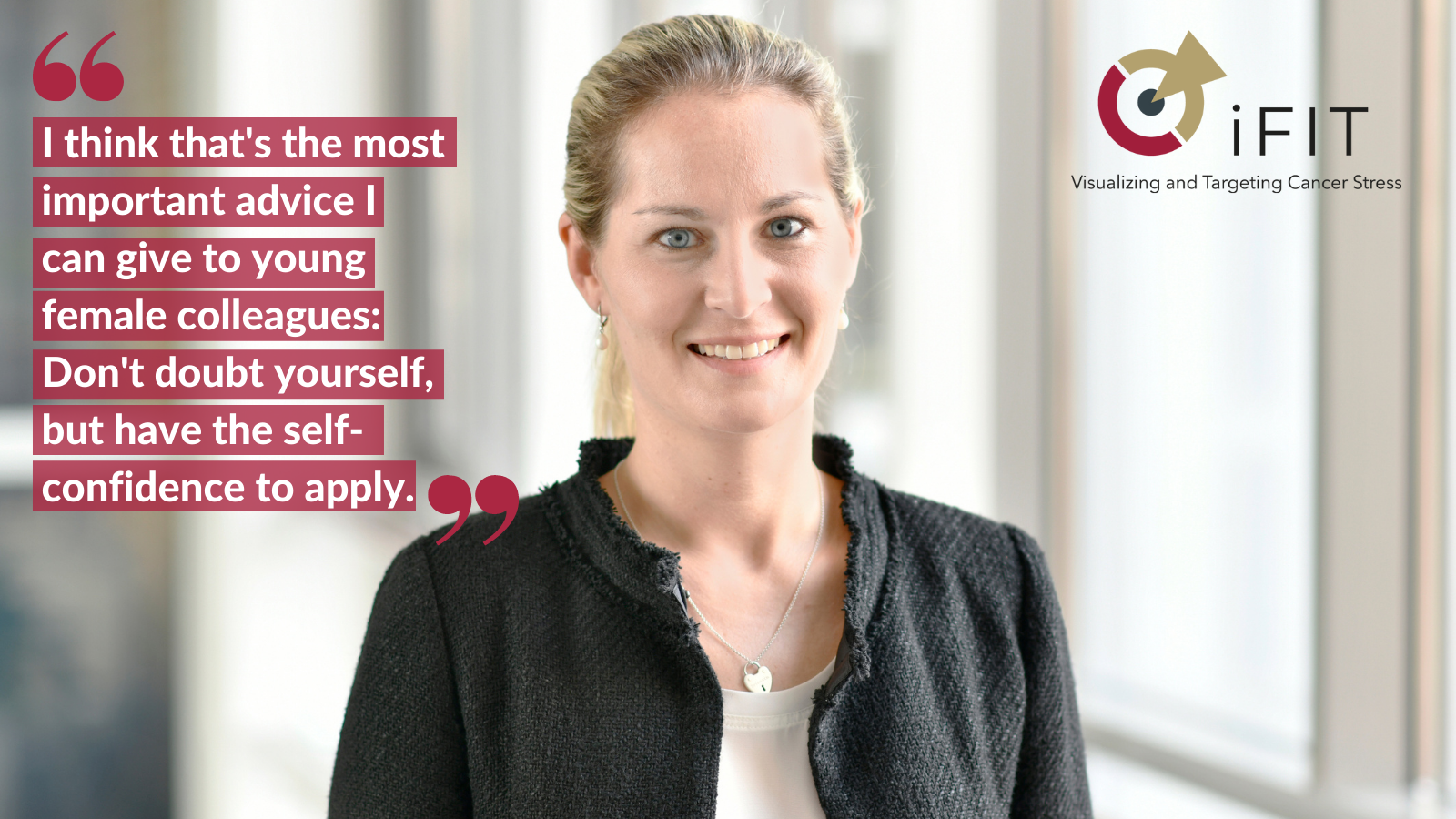Interview with Apl. Prof. Walz about the TÜFF program

Equality of people regardless of gender, sexual orientation, religion and origin in science is an essential prerequisite for performance and innovation. As an institution for excellent research, the University of Tübingen and the Faculty of Medicine are explicitly committed to this principle. The Tübingen Program for the Advancement of Women (TÜFF) is one of several measures to fulfill this principle and aims to support promising young female scientists on their way to habilitation, to prepare them for an academic career and thus to increase the number of qualified applicants for leadership positions. We interviewed former TÜFF program scholar and iFIT member Apl. Prof. Dr. Juliane Walz about the program and asked her how it helped her in her academic career.
1) What made you decide to join the TÜFF program back then?
The Tübingen Program for the Advancement of Women offered me the perfect opportunity to focus primarily on my scientific activities during the decisive phase of my habilitation. At the same time, the TÜFF program gave me the freedom to exchange ideas with other women at the same career level. The numerous additional courses that prepared me for my further career steps were extremely interesting. For example, a seminar that prepared me for applying for a professorship. These offerings were immensely valuable and prompted me to submit an application for a place in the TÜFF program.
2) How did the TÜFF program help you on your way to becoming a research group leader and physician?
First and foremost, the time off from my routine clinical activities helped give me the space I needed to write on my final publications for my habilitation and even to start writing my habilitation thesis already. The opportunity to expand my career network was also invaluable. For example, I met a colleague through the TÜFF program with whom I started an extremely successful collaboration. Without TÜFF, this would never have come about because we probably wouldn't have met.
3) How do you reconcile research and daily clinical routine?
I have the great advantage that I am currently employed clinically in the KKE Translational Immunology, where I have the freedom to clinically take care of my studies with self-developed peptide vaccines. Thus, my daily clinical routine and my research activities can be reconciled relatively well and flexibly. For clinician scientists, it is always a challenge to reconcile both, for example, to go to the outpatient clinic in the morning to take care of the patients and to take care of the research in the laboratory from noon on. I believe that this can only be reconciled if you see research and clinical work as a passion and not just as work, otherwise it doesn't work.
4) As a mother, researcher and physician, you have to manage three very responsible tasks at once. What would you like to see in the future from the advancement of women in science?
I would like to see a more flexible use of funding. We still have the problem that although funds are made available for the advancement of women, they cannot be used flexibly, for example for childcare, for support in the household. It would actually help if funds could be used precisely for such purposes. If I could hire a nanny, for example, when events abroad or conferences overseas are scheduled, that would help enormously. Or if mothers going to congresses could easily be allowed to take their grandparents with them to guarantee childcare. Making such measures simple and flexible would help enormously.
5) They say "think manager, think male." Does the general idea of a typical manager need to change?
It would be desirable if there were a change in thinking there to enable more women to get into management positions. For example, it would also be conceivable for a professorship not to be held by one man or one woman, but by two women or even men, each with 50%, who share this professorship and can thus still reconcile family and career. In my opinion, however, we still have a long way to go to achieve this change in thinking.
6) What advice can you give to female applicants for TÜFF?
Apply! I think that is the most important advice I can give to young female colleagues. Don't doubt yourself, but have the self-confidence to apply. If possible, applicants should consult the responsible TÜFF supervisors at the medical faculty beforehand. They helped me a lot with my application. They check whether you meet the criteria, whether the 50% of the postdoctoral work has already been completed, etc. This helps immensely to ensure that you will be selected as a candidate. This helps immensely to be able to submit a promising application and I can only recommend applying for this program, because the year is not only valuable because of the time off, but also to make new contacts and thus to build up a network for the future.
You are interested in the TÜFF program? Check out the following website for more information: https://www.medizin.uni-tuebingen.de/de/medizinische-fakultaet/gleichstellung/tff-frauenfrderung/tff-habilitandinnen-frderung
The interview was conducted by Steven Pohl
About Apl. Prof. Dr. Juliane Walz:
Age: 37 years
Occupation: Research group leader in the Department of Immunology at the Interfaculty Institute of Cell Biology and senior physician in the KKE Translational Immunology at the University Hospital Tübingen.
iFIT Position: Representative for Promotion of Young Researchers and Equal Opportunity
Research focus: development of peptide-based immunotherapies for tumor and infectious diseases up to clinical trials
Learn more: https://www.medizin.uni-tuebingen.de/de/das-klinikum/mitarbeiter/1060
